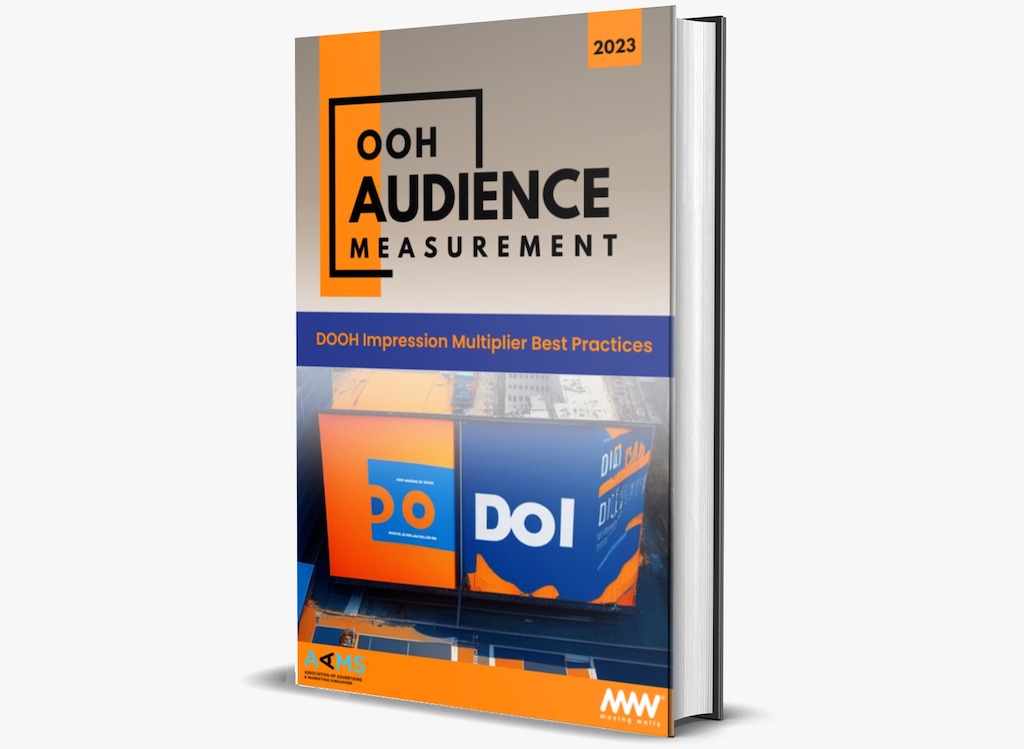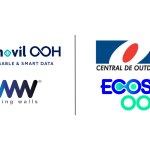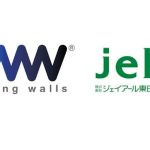The Outernet Marketing Innovation Group (OMIG), a regional industry initiative spearheaded by global ad-tech company Moving Walls and The Association of Advertising and Marketing Singapore (AAMS), proudly announces the release of an open-source document which encapsulates OOH audience measurement with a particular focus on the concept of the impression multiplier.
This builds on the success of the first OMIG initiative where more than 30 brand marketers contributed to an industry playbook for incorporating data and technology into Out-of-Home (OOH) media campaigns. The latest group is formed by leaders from the buy side who are responsible for shaping product and innovation strategies within their organisations.
This open-source document encompasses fresh ideas, thought leadership and crucial discussions centered around OOH audience measurement. It is an important first step in providing a baseline framework for OOH media owners to provide audience measurement that aligns with advertiser expectations.
Commenting on the framework, Memo Moreno Vice President of the Media Specialists Association of the Philippines (MSAP) and Managing Partner, Mindshare said that “The DOOH Impression Multiplier Framework is an enabler to advertisers and media agencies in making data-driven decisions when it comes to OOH placements.
It removes the guesswork. It moves us from an old school measurement system to more relevant, real-time and actionable ways of working.”
“This is an exciting step towards developing an industry-recognised measurement for OOH. The methodology and data sources are robust and well thought through.
With sufficient campaigns to show efficacy, this should allow advertisers and media planners to make more informed decisions on their OOH mix and investment,” said Elaine Poh, Managing Director, Domestic Business of Publicis Media
Meanwhile, Craig Harvey, Head of Research at Mediabrands APAC said “The evolution from Opportunity to See to Likely to See, or Attentive Reach, is aligned with how media agencies are now looking at the value of impressions. As an industry having 100% transparency- on our metrics is highly important.”
“In today’s media environment brands are spoiled with choices. Committed outcomes are becoming a norm. Brands are consistently looking to optimize their media investments with better-performing channels. Outcome measurement is at the center of decision-making.
It allows brands to understand how their campaigns are performing and, as a result, reduce wastage and increase outcomes. For Programmatic DOOH to continue growing, the industry needs to define measurable KPIs and track outcomes to improve advertiser trust,” opined Nitin Kumar, Chief Investment Officer at GroupM Vietnam.
Melanie Lindquist, MD (APAC), Talon OOH echoed that “The measurement of OOH is a continuous pursuit to provide consistent, data-backed proof of OOH (and DOOH) effectiveness in the media mix.
AAMS’ industry collaboration, including publishing of this type of best practice documentation, is a step in the right direction for unified and validated OOH measurement in Singapore.” –
OOH has historically been bought based on traffic data, size and perceived premium value of the location. With the advent of digital screens, more advertisers are exploring these as an extension to their video campaigns.
However, the bottleneck in such decision-making is accountability as advertisers want to know the impact of the campaign on their target audience. There needs to be a robust and standardised DOOH monitoring system that will allow the buy side to look at DOOH as an integrated and strategic media platform in achieving an incremental audience base.
This is a first step towards that.” – Avinash Sahu, Head of Media Intelligence & Investments at Entropia (a part of Accenture).
This framework marks a pivotal step forward in advancing the reliability, accountability, and effectiveness of DOOH in the digital ecosystem.
Embracing a unified currency and industry-wide measurement standard for DOOH allows advertisers and media agencies to make data-driven decisions, while fostering transparency and trust. – Micaela Soyza, Head of Matterkind Malaysia
This implementation of recommended measurement models laid out in this framework is envisioned to improve trust among advertisers so that they are able to plan and execute Programmatic DOOH campaigns across multiple media owners who are providing impression data from industry-verified sources.
Gain instant access to the playbook today by downloading your free copy here.
MARKETING Magazine is not responsible for the content of external sites.











